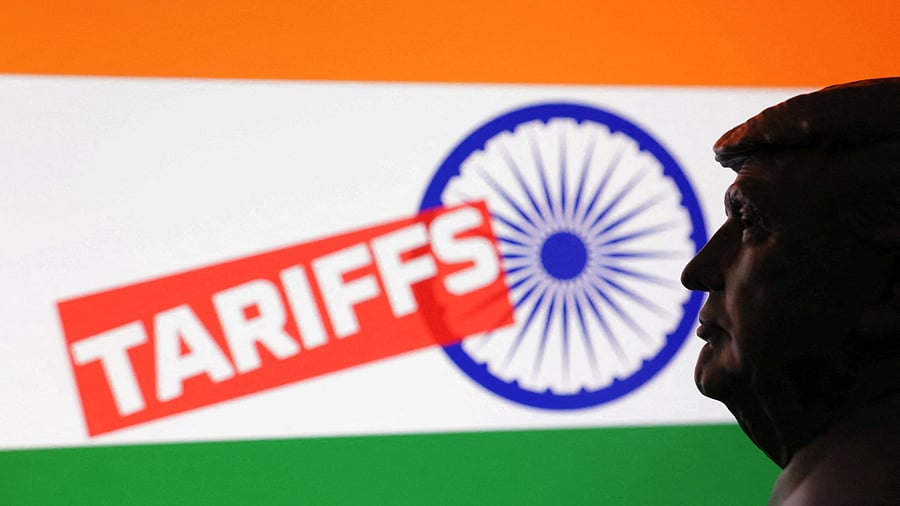
A 3D-printed miniature model of US President Donald Trump, the Indian flag and the word 'Tariffs' are seen in this illustration
Credit: Reuters Photo
New Delhi: The Ministry of Commerce and Industry on Monday told Parliament’s Public Accounts Committee (PAC) that marine exports are likely to be “negatively” impacted by the 50% US tariff, as it places India at a disadvantage compared to competitors like Ecuador, which faces lower tariffs.
Sources said Special Secretary (Commerce) Rajesh Agarwal told the panel, led by senior Congress MP KC Venugopal, that Indian exporters “could lose ground in this vital sector” unless a bilateral trade deal with the US that lowers tariffs is reached.
He is also reported to have told the panel that the “overall impact” of US tariffs on Indian industry is likely to be “limited” in the immediate term, referring specifically to tariffs on pharmaceuticals.
The issue of the US tariff came up during the PAC meeting while examining officials from the Ministries of Commerce and Industry as well as Finance on the CAG’s Performance Audit of the Export Promotion Capital Goods (EPCG) Scheme, sources said.
According to sources, Agarwal said the situation is “more challenging” for marine exports, especially fish, compared to the pharmaceutical sector. Marine exports face a 50% tariff, placing India at a “disadvantage” compared to competitors like Ecuador.
Against this backdrop, Agarwal said India is simultaneously pursuing diversification of export markets and continuing negotiations with the US, expressing “some optimism” about reaching an agreement soon. He also told the panel that India has opened up new opportunities through Free Trade Agreements.
Referring to the FTA signed with the European Free Trade Association, covering Switzerland, Iceland, Norway and Liechtenstein, sources said he told the panel that it is particularly beneficial for marine exports, offering tariff reductions in the range of 8-12%.
He also said the FTA with the United Kingdom, which is expected to be operationalised early next year, will eliminate 8-12% duty on marine exports to the UK, unlocking access to a five billion pound marine import basket.
On tariffs on pharmaceutical products, he said India’s exports to the US are largely in the form of generic formulations, rather than patented drugs or branded generics.
The tariff applies to China as well, which neutralises any relative disadvantage for India. However, in the longer run, he warned that high tariffs are never good for trade, as they can gradually erode competitiveness, dampen export growth, and complicate negotiations.
He added that the government’s stated objective is to safeguard domestic sectors such as agriculture and other sensitive industries, while simultaneously expanding export opportunities for Indian pharmaceuticals and other industries.
